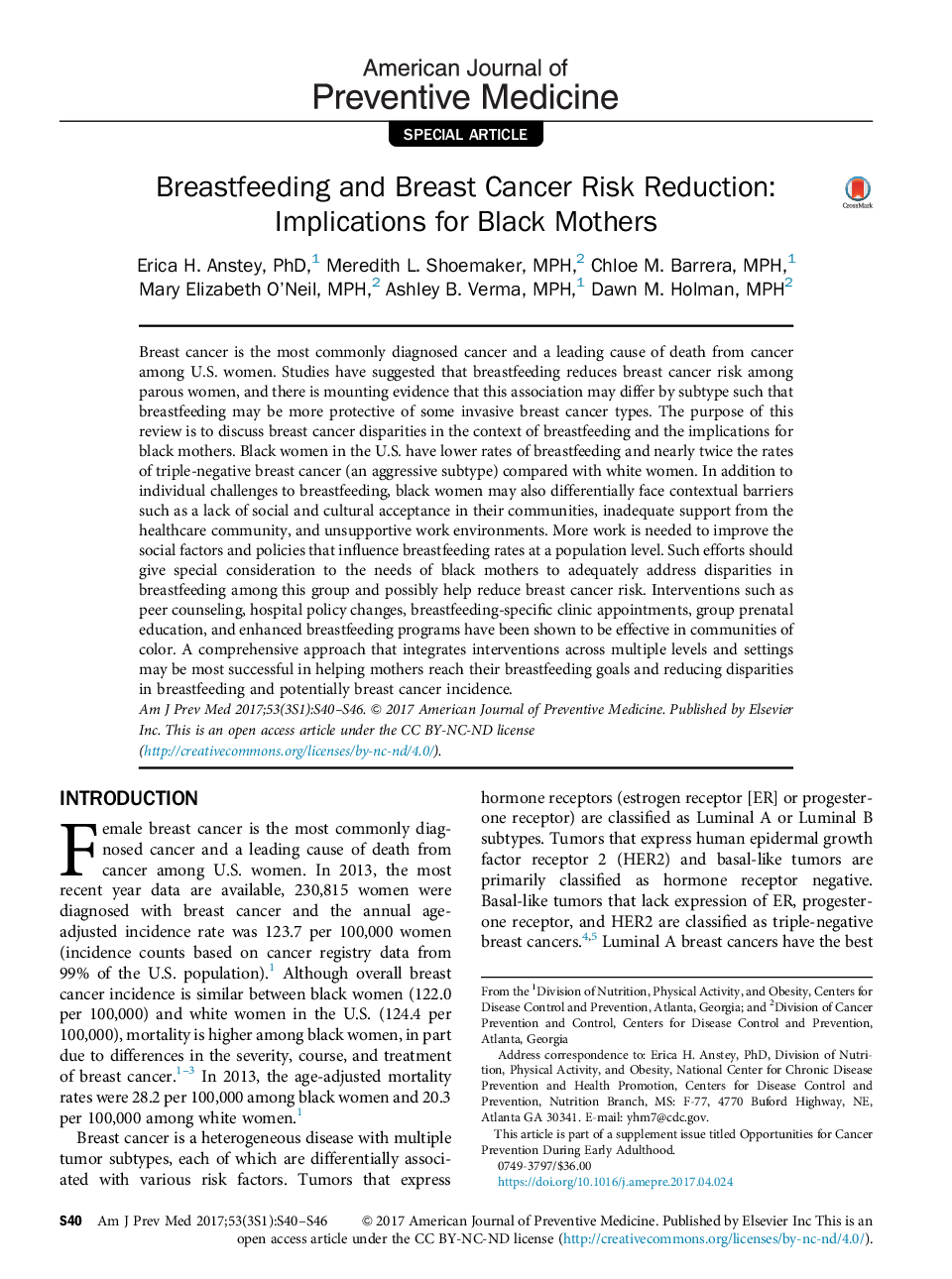ترجمه فارسی عنوان مقاله
تغذیه با شیر مادر و کاهش خطر ابتلا به سرطان پستان: پیامدهای مادران سیاه
عنوان انگلیسی
Breastfeeding and Breast Cancer Risk Reduction: Implications for Black Mothers
| کد مقاله | سال انتشار | تعداد صفحات مقاله انگلیسی |
|---|---|---|
| 139940 | 2017 | 7 صفحه PDF |
منبع

Publisher : Elsevier - Science Direct (الزویر - ساینس دایرکت)
Journal : American Journal of Preventive Medicine, Volume 53, Issue 3, Supplement 1, September 2017, Pages S40-S46
ترجمه چکیده
سرطان پستان، شایعترین سرطان تشخیص داده شده و یکی از علل مرگ و میر ناشی از سرطان در میان زنان ایالات متحده است. مطالعات نشان داده اند که تغذیه با شیر مادر خطر ابتلا به سرطان سینه را در زنان همجنسگرا کاهش می دهد و شواهدی وجود دارد که این ارتباط ممکن است از نظر زیر نوع متفاوت باشد به طوری که ممکن است شیردهی بیشتر از انواع سرطان های مهاجم پستان محافظت کند. هدف از این بررسی این است که اختلافات سرطان پستان را در زمینه تغذیه با شیر مادر و پیامدهای آن برای مادران سیاه صحبت کنیم. زنان سیاه پوست در ایالات متحده دارای مقادیر کمتری از شیردهی و تقریبا دو برابر میزان سرطان پستان سه گانه منفی (زیرمجموعه تهاجمی) نسبت به زنان سفید پوست هستند. علاوه بر چالش های فردی برای تغذیه با شیر مادر، زنان سیاه پوست نیز ممکن است متفاوت از موانع مواجه باشند مانند عدم پذیرش اجتماعی و فرهنگی در جوامع خود، حمایت نامناسب از جامعه مراقبت های بهداشتی و محیط های کار بی نظیر. برای بهبود عوامل اجتماعی و سیاست هایی که بر میزان شیردهی در سطح جمعیت تأثیر می گذارند، کار بیشتر لازم است. چنین تلاش هایی باید به نیازهای مادران سیاه پوست توجه ویژه ای به تنوع در تغذیه با شیر مادر در میان این گروه و احتمالا به کاهش خطر سرطان پستان کمک کند. مداخلات مانند مشاوره همکار، تغییرات در سیاست بیمارستانی، قرار ملاقات های کلینیک مخصوص شیردهی، آموزش پیش دبستانی و برنامه های تغذیه با شیر مادر در جوامع رنگی موثر بوده است. یک رویکرد جامع که مداخلات را در سطوح مختلف و تنظیمات ادغام می کند، ممکن است در کمک به مادران در دستیابی به اهداف شیردهی و کاهش تنوع در تغذیه با شیر مادر و احتمال ابتلا به سرطان سینه موفق باشد.

